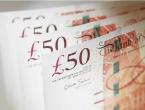EUR/USD
1.17858
0.110%
Gold
5096.86
2.005%
Oil
66.320
-0.480%
USD/JPY
155.059
0.041%
GBP/USD
1.34890
0.196%
GBP/JPY
209.162
0.248%
February 23 – The Iranian Foreign Ministry stated that its foreign minister and Iraqi foreign minister held a telephone conversation on Sunday evening. During the call, they reviewed and discussed the latest regional and international situation. The Iranian foreign minister briefed Iraq on the progress of the Iran-US nuclear negotiations. The Iraqi foreign minister emphasized Iraqs support for the ongoing diplomatic process and expressed hope that the ongoing talks would yield favorable results for Iran and bring peace and stability to the region.On February 23, local time, European Parliament International Trade Committee Chairman Alain Lange announced via social media that he would propose a suspension of the European Parliaments ratification of the EU-US trade agreement due to the "chaos" caused by the US Supreme Courts ruling that the US governments massive tariff policies were illegal. Lange stated that clear stipulations and legal certainty are needed before any further measures can be taken, and he will formally propose on the 23rd that the European Parliament temporarily freeze the ratification process of the trade agreement with the US until a proper legal assessment and clear commitment from the US are obtained. The EU-US trade agreement was reached last July, with the US imposing a 15% tariff on EU goods imported into the US.February 23 – Pakistani military sources stated on the 22nd that airstrikes conducted by the Pakistani military on the night of the 21st along the Pakistan-Afghanistan border resulted in the deaths of over 80 terrorists. The Pakistani Ministry of Information and Broadcasting issued a statement on social media platforms early on the 22nd, saying that the Pakistani military launched airstrikes, precisely targeting seven terrorist camps and hideouts along the Pakistan-Afghanistan border. The statement said that Pakistan took this action in light of a series of recent suicide bombings in Pakistan.February 23 – The Iranian Foreign Ministry stated that Iranian Foreign Minister Araqchi spoke by phone with the Omani Foreign Minister on Sunday to discuss and exchange views on the latest developments in indirect negotiations between Iran and the United States. During the call, the two sides consulted on arrangements for holding the next round of nuclear talks.February 23 – According to Axios, US and Iranian negotiators are expected to meet in Geneva on Thursday to discuss a detailed nuclear agreement proposal put forward by Iran. A senior US official said on Sunday that the Trump administration expects to receive the proposal by Tuesday at the latest. US officials said the current diplomatic efforts are likely President Trumps last chance to persuade Iran before launching a large-scale US-Israel military operation. Irans foreign minister previously stated that he expected to meet with Trumps special envoy in Geneva on Thursday. A senior US official confirmed the meeting plans but added that the Trump administration is still awaiting Irans proposal. Officials confirmed that the Trump administration and Iran may also discuss the possibility of a provisional agreement before reaching a comprehensive nuclear deal.











